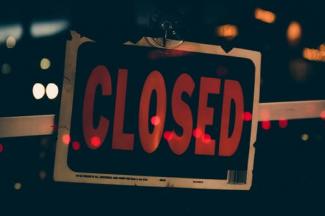Insolvency and Evictions During Covid
Laura Mather 15-09-2020
Covid-19 has caused great upheaval, including the closure of cafes, bars, nightclubs, theatres, cinemas, gyms and leisure centres, only some of which are able to tentatively reopen now.
These closures meant that, through no fault of their own, business owners faced potential difficulties in paying the rent due to their landlords. To tackle this, the Coronavirus Act 2020 (“CA 2020”) prevents a landlord from claiming possession of a property in the event that there is a non-payment of rent as and when it falls due. In a nutshell, they cannot evict their tenant just because the tenant cannot pay the rent. This protection was due to last until 30 June 2020
The CA 2020 protections go some way to help tenants but does not prevent landlords from taking other enforcement action, such as commencing insolvency proceedings against non-paying tenants so that they are deemed to be insolvent. This can cause individual tenants to be forced into bankruptcy and company tenants to be forced into liquidation.
In the case of an individual served with a statutory demand, that individual tenant can apply to have the statutory demand set aside, so long as an application is made within 18 days of the demand being served on grounds of there being a genuine dispute, a set-off or as a result of some procedural defect.
A company can be deemed to be insolvent if a creditor serves a statutory demand in respect of a debt of at least £750, which goes unpaid for a period of 3 weeks. In these circumstances the creditor can present a winding up petition, which can result in liquidation of the company.
To avoid the insolvency going further, a commercial tenant must issue an injunction application to prevent the presentation of a petition or, can apply to the Court to strike the petition out.
Even if the tenant does not have a genuine basis upon which to dispute the debt they can still apply to strike the petition out on the basis that its presentation is an “abuse of process”. The Court would consider this on two grounds. Firstly, that the landlord seeks to obtain a collateral advantage by putting the tenant under pressure and, secondly that the landlord is not acting in the best interest of the tenant’s creditors of which the landlord is one.
In these strange and difficult times, the Court would take into account the fact that, due to the continuing closures brought in to tackle Covid-19, the property will likely to sit empty for some considerable time if the tenant were forced to vacate due to insolvency and their lease was subsequently brought to an end. Even after businesses re-open, the landlord may struggle to re-let the property in the short to medium term or indeed find another tenant who would be willing to pay a rent equivalent to, or greater than the rent under the previous lease. In addition, the Court would consider whether the landlord’s desire to liquidate the tenant is in the interest of all of the tenant’s creditors.
Our property litigation partner Mark Cummings comments: “Tenants should, at an early stage, seek expert legal advice if a statutory demand is served on them or they have difficulty paying their rent. From the landlord’s perspective, all of the above factors should be considered carefully before a statutory demand is served so as to avoid the potential for costly litigation where costs sanctions may apply. Tenants and landlords need to work together during to find the best strategy for preservation of both their businesses.“
Our litigation and property team at Samuels Solicitors is well placed to assist tenants and landlords who have been adversely affected by the closure of their business or a reduction in rental income because of measures brought in to tackle the current global pandemic. Contact us today to find out how we can help.

